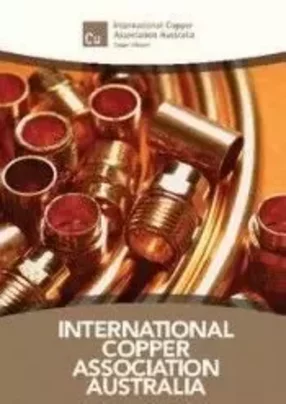
International Copper Association Australia
World demand for copper keeps rising as it becomes the go to metal for everything from technology to clean energy, and that says John Fennell*, is good news for Australia.
The last decade has been an incredible time to be working in the copper industry, not only here in the Asia Pacific, but right round the world.
Not only has world demand for copper kept going up-tipped to keep growing by 4 percent a year for the foreseeable future-but Australian production has for the first time just passed the one million tonne mark. That’s also meant a healthy bottom line for the Australian economy, with the red metal expected to generate over $8 billion this financial year.
While copper’s stellar price rise-at least until Europe’s debt crisis re-ignited and China’s booming economy took a breather recently-has tended to grab all the headlines, it’s not the only reason copper keeps making news. Recognized as a global economic bellwether, and always one of the world’s hardest working industrial metals, copper has been nimble enough to make the jump from the Bronze to the Space Age-from coins to computer chips-with barely a hitch.
Certainly it’s an agenda being driven by the International Copper Association Australia (ICAA) as part of the global Copper Alliance that represents all of the world’s leading producers and manufacturers. ICAA is the peak copper organization in the Oceania Region, with the Board made up of some of Australia’s biggest companies, including BHP.Billiton, Xstrata, Rio Tinto, Tyree Industries, OK Tedi Mining, Kembla, Oz Minerals, CST Mining Group, Olex, Crane Copper Tube and MMG.
Creating new uses and markets for copper is our focus, and we’re doing that globally of course, as well as here in Australia. By creating partnerships with industry, government and universities we’re pursuing smarter technologies for buildings, motors, aquaculture, electricity grids, infection control and renewable energy. We also work with other ICA offices across Asia given that research and development costs are generally lower there, and a large pool of fabricators and manufacturers have the flexibility to rapidly introduce new products in a market that is not only highly competitive, but increasingly consumption driven.
Given that most of Australia’s copper is exported as refined ore, adding value to this valuable metal while also delivering real world benefits just makes a lot of sense. And some of the most promising are:
Antimicrobial Copper: Antimicrobial Copper is also known as the Cu+ brand and many companies in the Asia Pacific region are developing products for use in health, childcare and transport. Other uses are emerging as well, and Chinese company, Chigo, has launched a healthier air conditioner, Coca Cola is promoting a copper tank water dispenser and RenHome is selling Cu+ kitchenware.
Smart Buildings: ICA.Australia pioneered the introduction of Smart Wiring™ as an industry-backed standard to guarantee home technology works the way it should. It is now in over a third of all new Australian homes and over a quarter of renovations, is supported by a Smart Wired® Consortium of major companies, and the concept has been exported to China and India.
Electric Cars: Deloitte’s has said that half of all new cars sold in Australia in a few years will be electric by 2015. ICA and other partners like McNair, Yulon and Nissan have identified three key technologies crucial to improved electric car performance-battery thermal management, next generation wiring harness and EV heat pump exchangers. All three are currently being tested and applied, with plans to have all three innovations installed by one car company in the near future.
Aquaculture: Fish farms are big business and copper alloy nets are finding a home here because they’re more durable and healthier than other materials. ICA has been working with companies like Mitsubishi Shindoh, Daechang and Wieland in Asia and has now deployed 10 cages in locations like Korea for field tests. Brass nets are already in use in Tasmania and I expect to see more companies installing them in Australia this year.
*John Fennell is the head of the International Copper Association Australia and can be contacted at [email protected]

